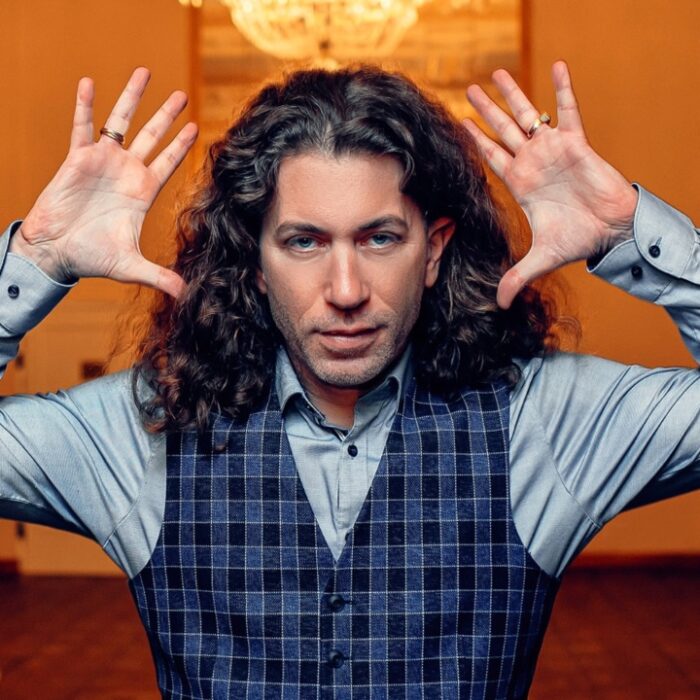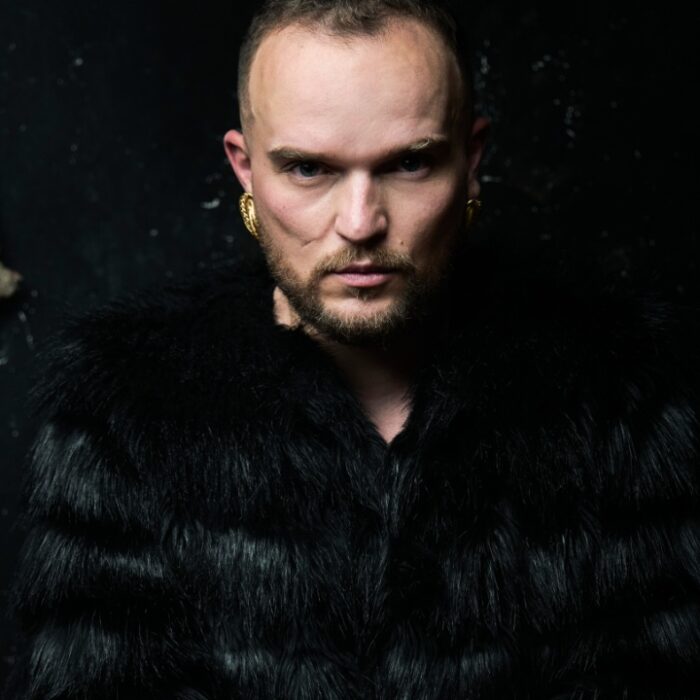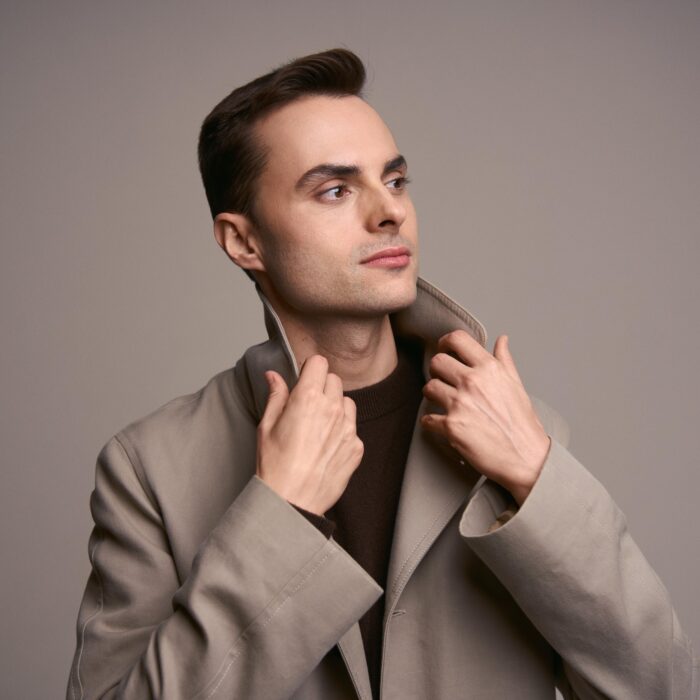
Q & A: Damien Geter, Jessica Murphy Moo, Adam Turner on Creation of ‘Loving v. Virginia’
By David SalazarIn 1959, Richard Loving, a white man, and his wife Mildred Loving, a woman of color were convicted of violating the Racial Integrity Act of 1924 in Virginia. They were sentenced to prison by Judge Leon M. Bazile, but the sentence was suspended on the condition that they leave their home state and never return.
The Lovings appealed their case to the Supreme Court of Virginia and it eventually reached the U.S. Supreme Court. In 1967, the U.S. Supreme Court ruled unanimously in favor of the Lovings, noting that laws banning interracial marriage violated the Equal Protection and Due Process Clauses of the 14th Amendment of the U.S. Constitution. The case proved a major victory for Civil Rights, ultimately ending all restrictions on interracial marriage.
The case has been a source of inspiration for several films, most famously the 2016 adaptation starring Joel Edgerton and Ruth Negga. And now, the story will get a new life in the form of an opera, set to premiere at Virginia Opera on April 25 in Norfolk with performances in Fairfax and Richmond.
The creators of the opera are composer Damien Geter and librettist Jessica Murphy Moo. Adam Turner, Artistic Director and Conductor of Virginia Opera, will conduct the work, which will be directed by Denyce Graves-Montgomery.
OperaWire spoke to Geter, Murphy Moo, and Turner about the inception of the work and the process of making it a reality.
OperaWire: Loving v. Virginia is a landmark case in this country. There was a major film a few years ago. When did the idea to pursue this story as an opera begin? Who was first inspired to pursue and how did it ultimately come about?
Adam Turner, Artistic Director and Conductor: In the early months of 2020, I met with Virginia Opera’s Artistic Advisory Committee to discuss future programming ideas and long-range planning initiatives. All of us acknowledged that with our 50th Anniversary Season on the horizon, we fervently hoped to meet the moment with something truly commemorative and historic – something reflective of who we are and where we’re going. How about commissioning a world-premiere opera? And five years might be just enough time to plan!
Several ideas were floated, but we all agreed to proceed with the firm desire to feature a Virginia composer and a Virginia story. Virginia Opera had touched on local themes previously – particularly in successful collaboration with the Virginia Arts Festival, co-commissioning works like “Rappahannock County “(2011) and “Pocahontas” (2007). But this time, we hoped to uncover something different: a more personal, human story.
I’ll never forget what followed our meeting: a parking-lot conversation with the former statewide board chair. “The Civil War, Jamestown…we’ve done those stories,” I said. “I wonder if there’s something else. Maybe even something with ‘Virginia’ in the title—a good old-fashioned love story, perhaps.” I told our former board chair I was planning to watch the film Loving to see if the story was grand enough to be operatic. And the rest, as they say, is history.
OW: As I mentioned, there was a film about this story. How can opera illuminate aspects of the story that other art forms can’t?
Damien Geter, composer: Opera exceeds the limits of emotion. In fact, all music serves this purpose which is why music is used in film. The power of the voice, the power of the orchestra, effective lighting, etc. together take the audience on a journey that allows our senses to go into overdrive; and that’s what makes opera the perfect vehicle for stories like this.
OW: Can you talk about the musical language you’ve developed for this opera? How did you decide on that approach?
DG: Like any opera I’ve written, the musical language is dictated by the story. I wanted to be sure that whatever was happening in the libretto, also happens musically to support it, and the overall story telling. I took more risks with this piece which gave me the freedom to write one of my more eclectic scores. There is bluegrass, rock, rhapsodic moments à la Puccini, Americana, and even some not-so-tonal moments.
OW: Jessica, how did you decide on the use of language for this opera, especially given it is based on real-life events?
Jessica Murphy Moo, librettist: Some of the language grew out of the public record interviews Mildred and Richard Loving had done with the press. At other times we tried to use imagery that would have come from their life in Central Point, VA, the place where they felt they belonged. The Law Chorus language sounds very different. For the chorus, we used language from the warrant for their arrest, their court summons, Virginia’s Racial Integrity Act, Judge Bazile’s sentence. The music in these moments sounds very different as well.
OW: What have been some of the major challenges of creating this work based on real life? How much contact did you have with the Loving family or other people associated with the case during the creation of the work?
JMM: Virginia Opera reached out to the Loving family early on to see if they’d want to participate, and they declined, which was a perfectly valid choice. We really just wanted to respect their wishes. This also meant we would go with public record documents to piece together as much as we could. I made a trip to Caroline County, Virginia, so that I could get a general sense of some of the spaces they inhabited. And then I also did a deep dive into the legal archives. Damien and I were able to have a fact checking conversation with Philip Hirschkop, one of the two ACLU lawyers who represented the Lovings and argued their case before the US Supreme Court. One of the challenges of creating an opera about a story that actually happened is that we wanted to do our best to get things right because there might be people in the audience who would remember it firsthand. We also wanted to allow ourselves the freedom to imagine some behind-closed-door—and even internal—moments.
OW: Tell me about your process working together as a librettist / composer team?
JMM: Typically with opera the words come first, so I was first up with the research and figuring out an overall shape for the story. But really Damien and I were in touch and hashing things out before I’d even put a word on the page. Our job is to tell a story through music, and when I ultimately heard Damien’s music, I heard the story we were really trying to tell together. He made such incredibly smart choices all the way through, and his music is really so moving. Working with Damien has been a dream. Truly, there was total trust and respect there all the way through.
OW: What do you hope audiences take away from this experience? How do you think that this opera can provide a guiding light in such trying social and political times?
AT: When I watched the film Loving (2016) in those early months of 2020, I was profoundly moved by the story of this beautiful couple’s love, strength, and quiet resilience in the face of so many difficult obstacles. There was a simplicity, an almost pastoral tranquility to the bucolic life they so desired. But the laws of the time, the resistance and injustice they faced required heroic perseverance and bravery. Mildred and Richard Loving’s 1967 victory before the Supreme Court changed history—not only for themselves, but for generations to come.
Damien and Jessica have created an extraordinary work, and collaborating with these two visionary artists over the past three years has been a highlight of my career. In this opera, we honor a story of perseverance, dignity, and the quiet, transformative power of love. It is our hope that audiences will be as moved as we have been by this powerful chapter in Virginia—and American—history. This storytelling engages our community, amplifying important history and demonstrating a major victory for social justice, having the potential to uplift the spirits of all our audiences — most especially in these turbulent times. I can’t think of a better way to commemorate Virginia Opera’s 50th Anniversary, as we continue striving to enrich the cultural fabric of the Commonwealth of Virginia by showcasing our very own stories, voices, and storytellers.
DG: Empathy. I don’t know what the opera itself can do, but hopefully the audience will realize the importance of the individual to effect change.


